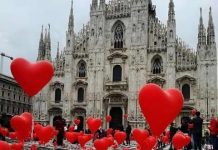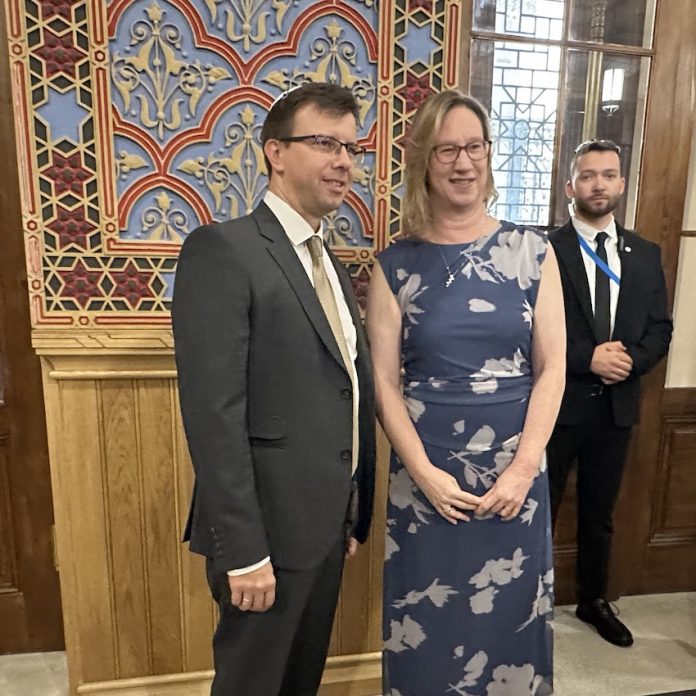“European Jewish communities are part of our European heritage and identity” – Hungarian Minister János Bóka
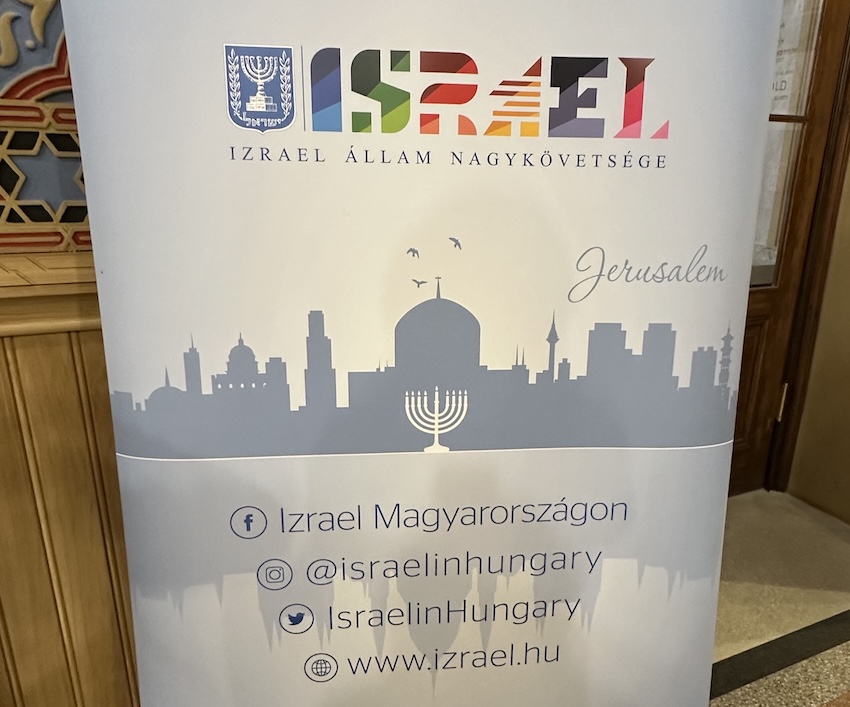
The Embassy of the State of Israel in Budapest hosted a solemn and festive celebration of the Jewish New Year (5786) in the historic Rumbach Street Synagogue.
Built in 1873 by the Neolog Jewish community, the Rumbach Synagogue has long symbolized the richness and resilience of Jewish life in Hungary. Today it is not only a restored place of worship but also a vibrant cultural centre. After decades of destruction and neglect, it was fully renovated, restoring its architectural and spiritual grandeur, and reopened in 2021. Since then, it has served both as a sacred space and as a venue for concerts, performances, events, literary evenings, educational programs, and exhibitions in cooperation with the Hungarian Jewish Museum and Archives.
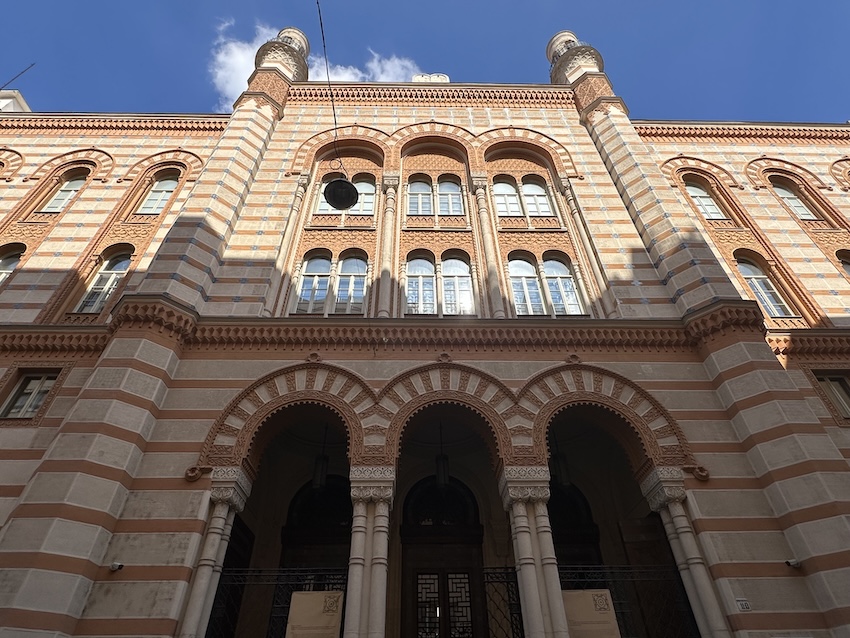
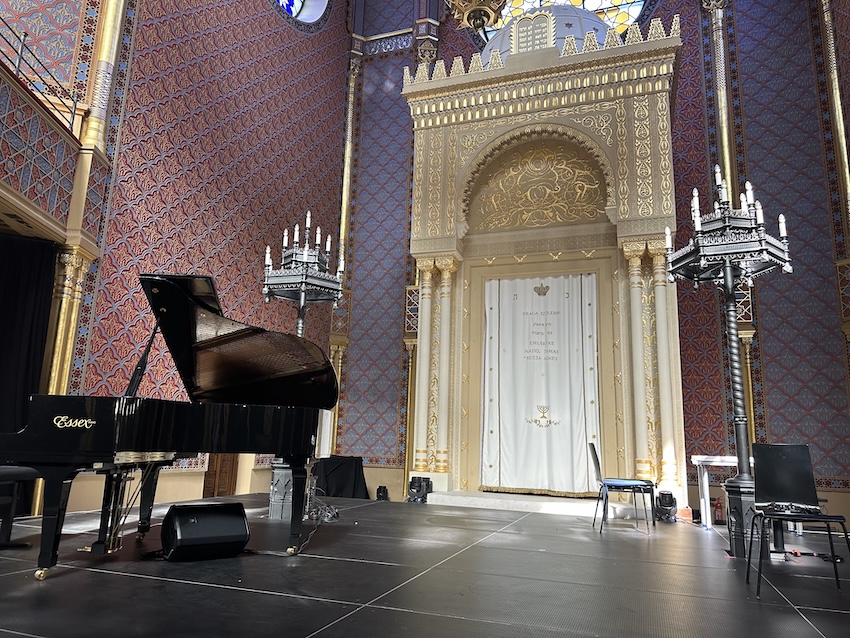
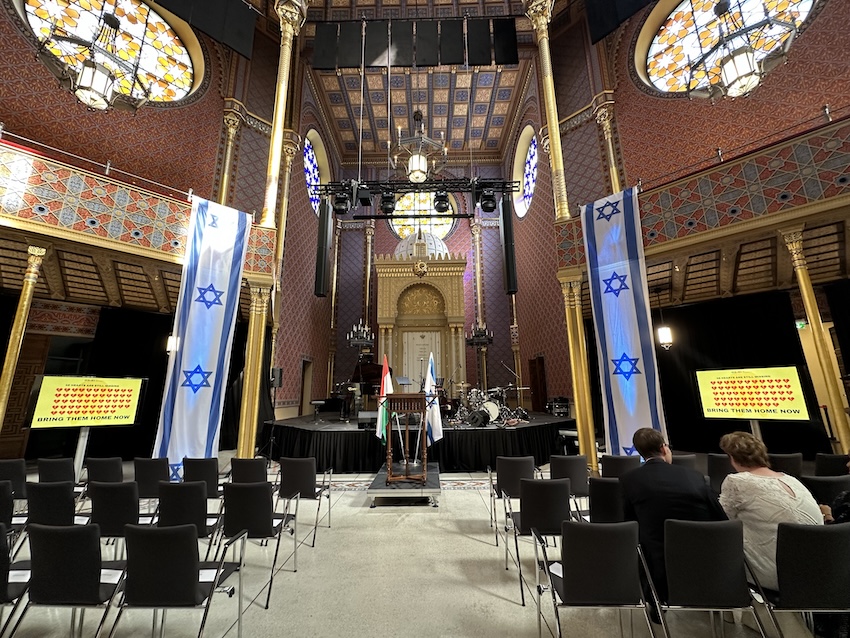
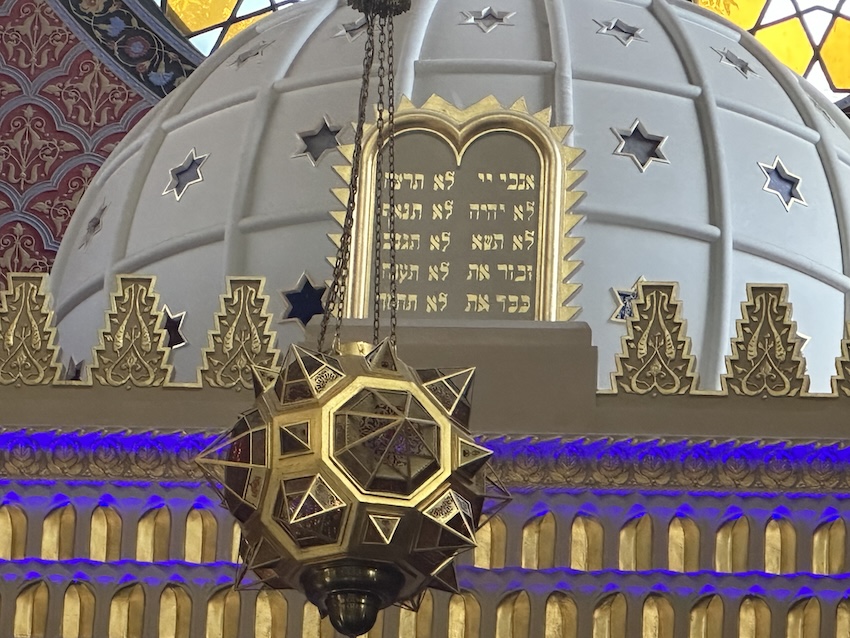
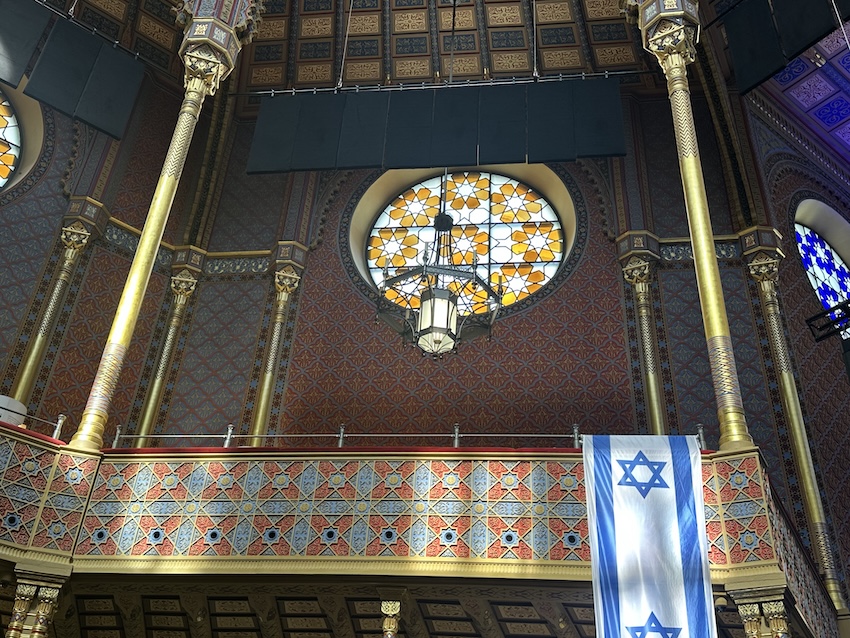
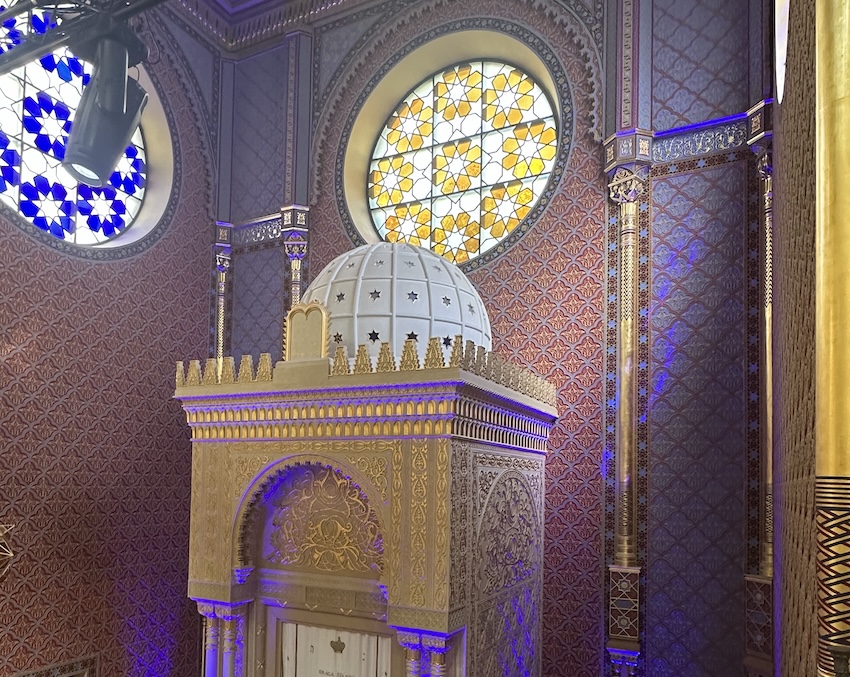
Although the official holiday of Rosh Hashanah 5786 began at sunset on 22 September 2025, and ended at nightfall on 24 September, the Embassy’s celebration on 12 September provided a meaningful opportunity for Hungarian political officials, members of the diplomatic corps, and leaders and representatives of the Jewish communities to gather in the spirit of renewal, solidarity, and friendship, fostering dialogue and connection ahead of the Jewish New Year.
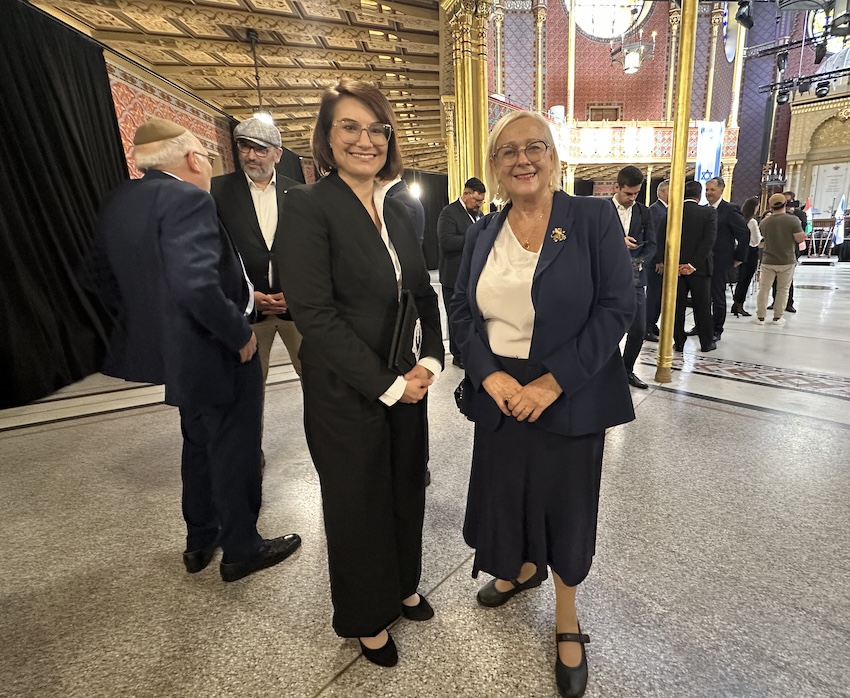
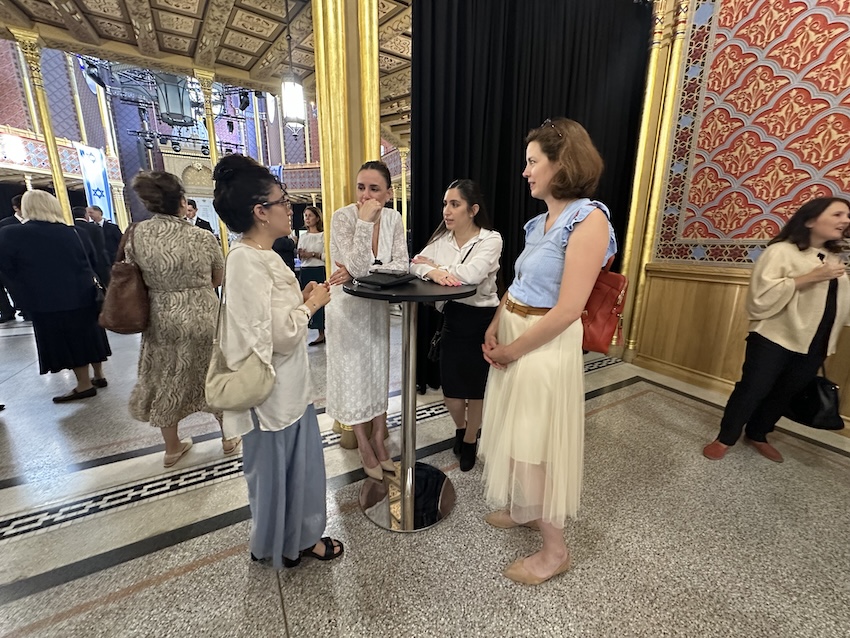
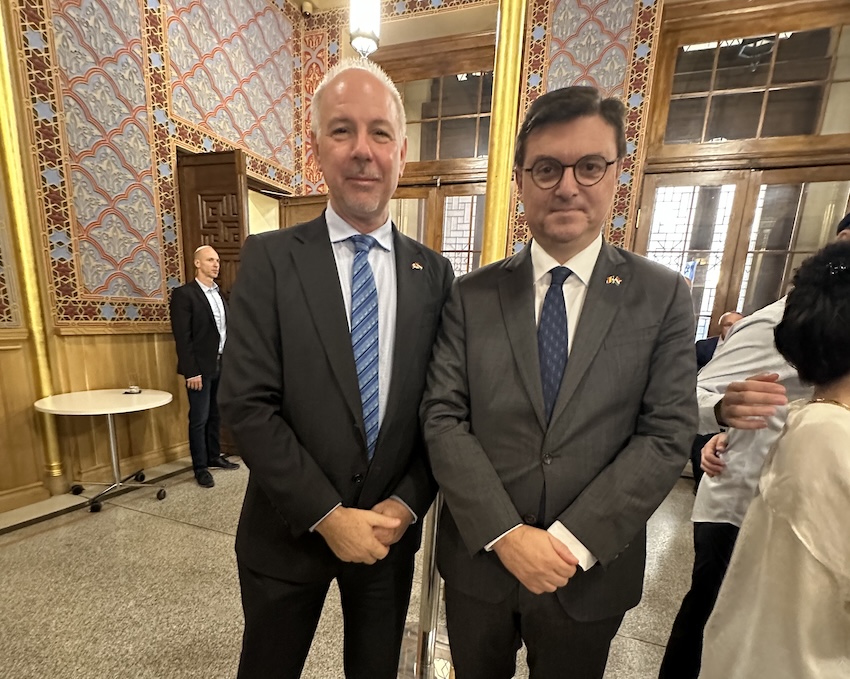
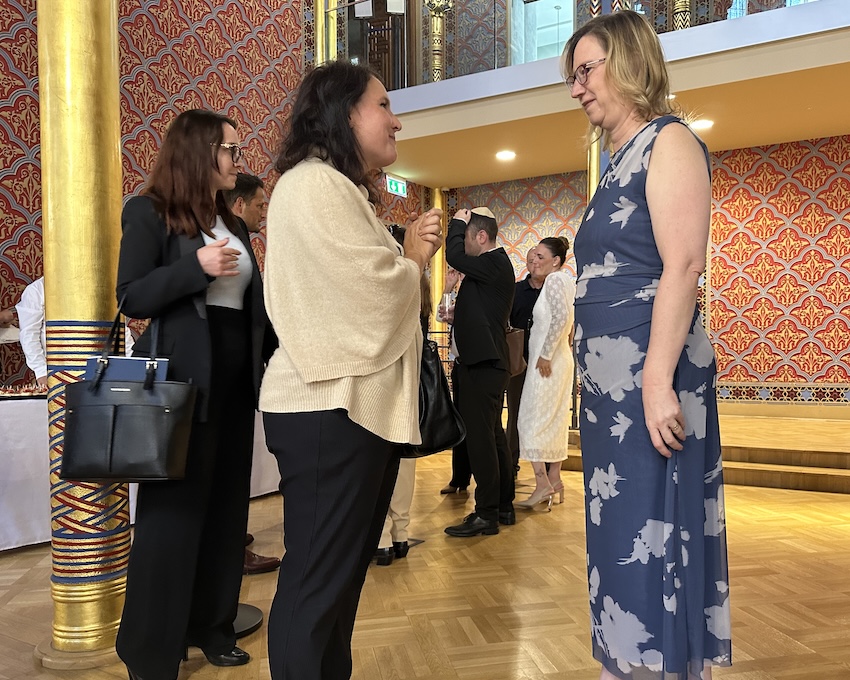
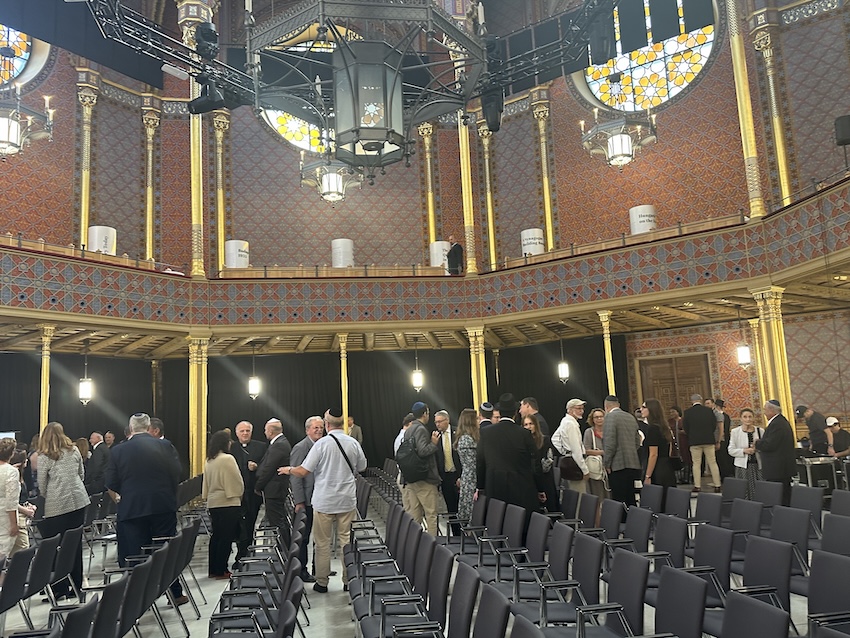
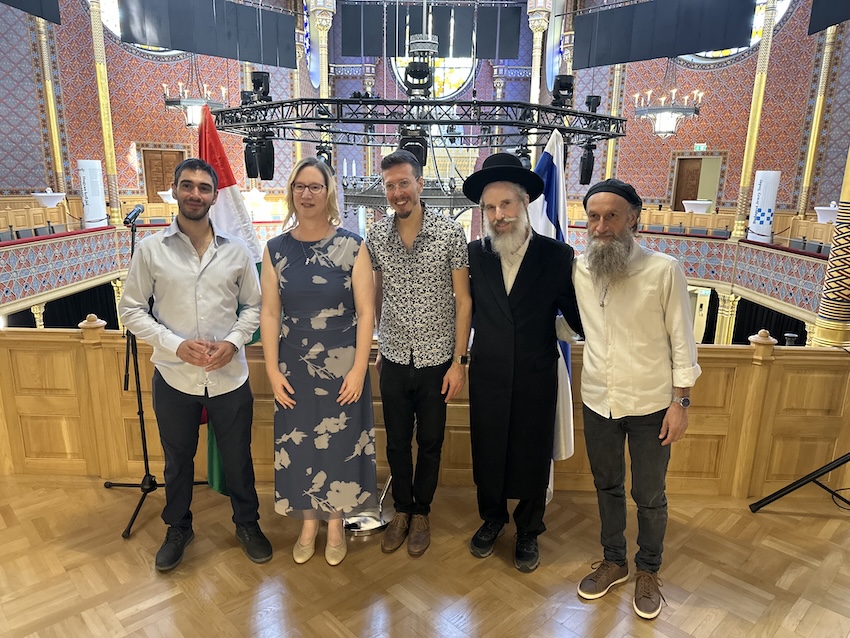
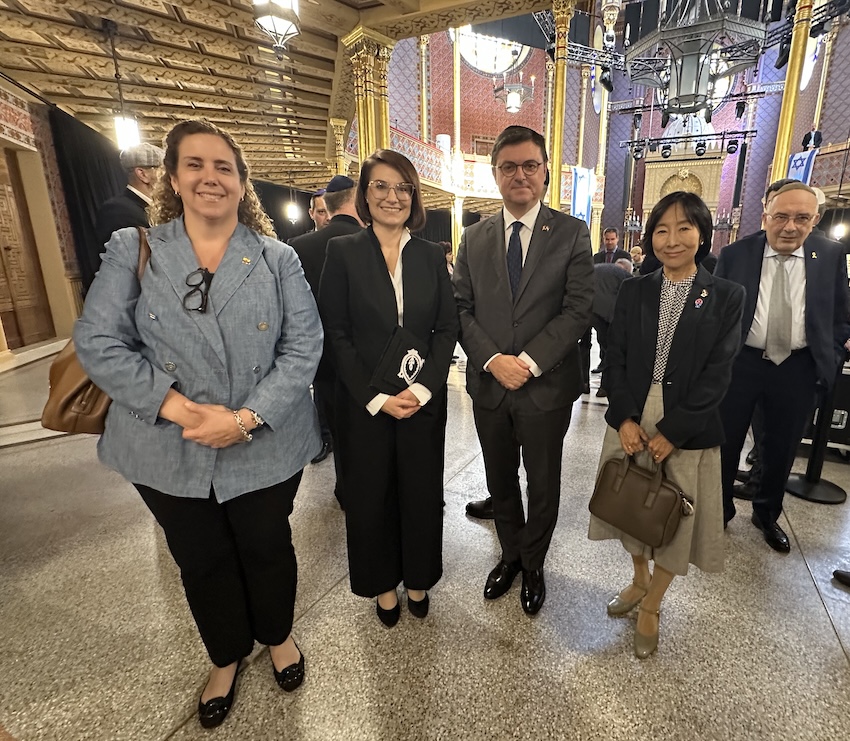
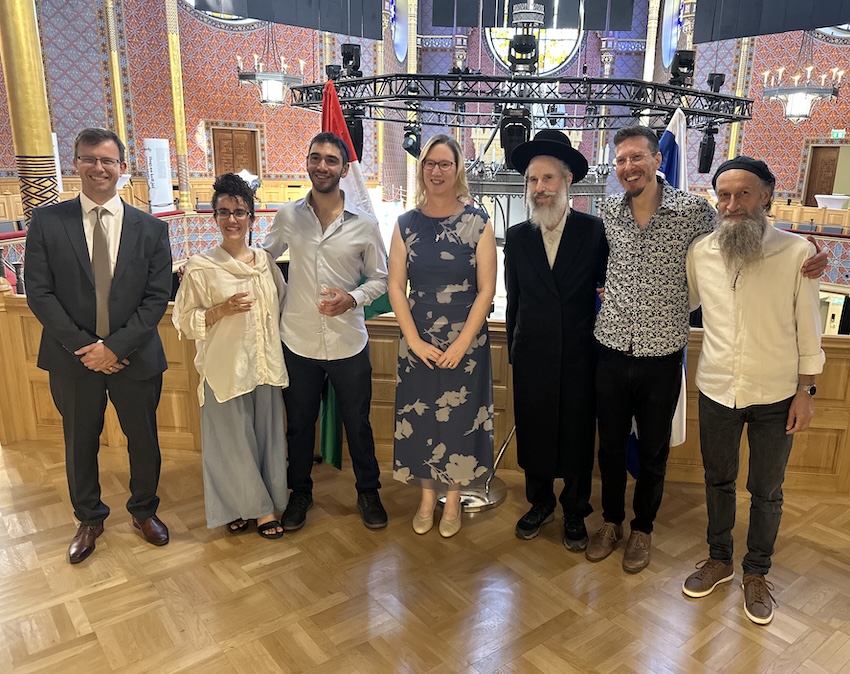
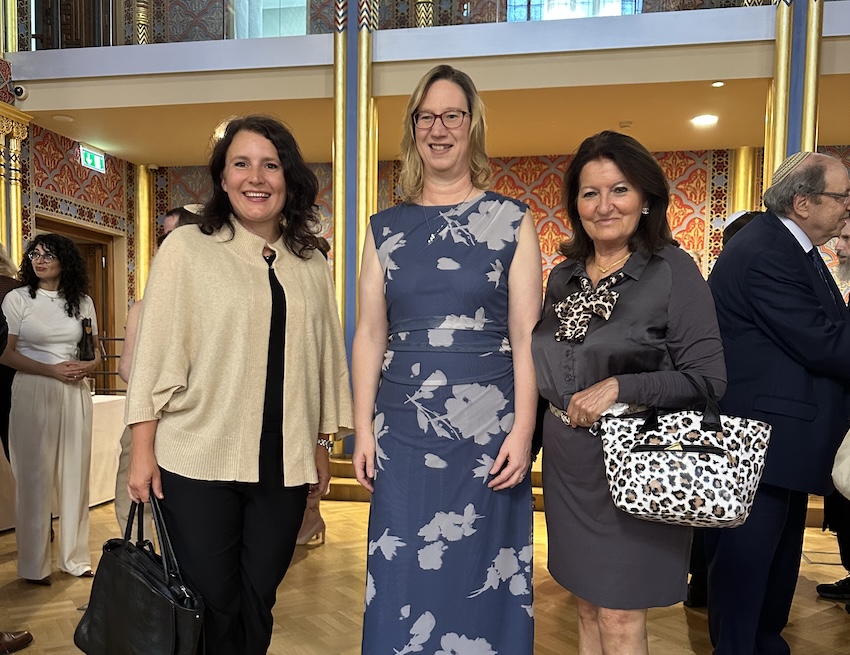
The event opened with a warm welcome by the Speaker of the Embassy, followed by the day’s keynote addresses.
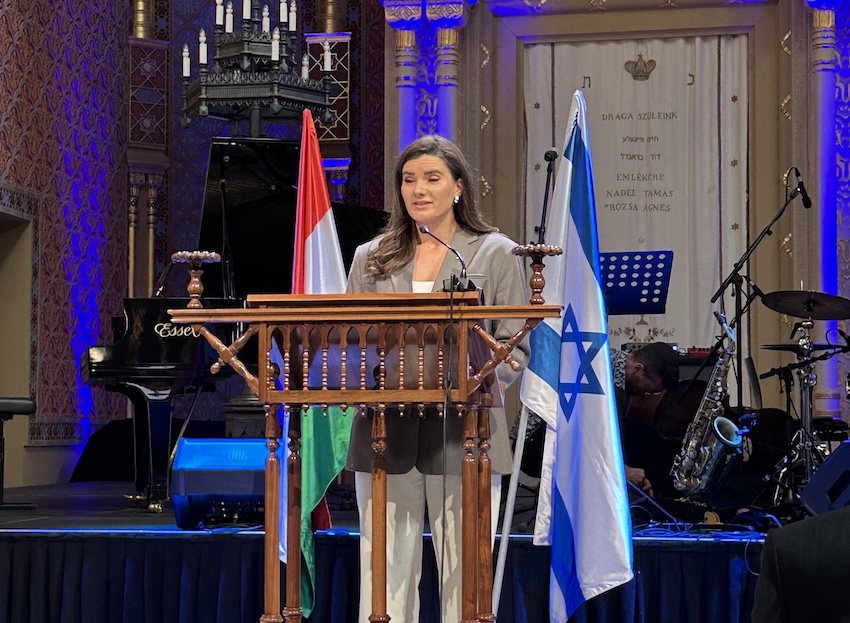
Representing the Hungarian Government, H.E. János Bóka, Minister for EU Affairs and Commissioner for Combating Antisemitism, delivered a speech to mark the occasion:
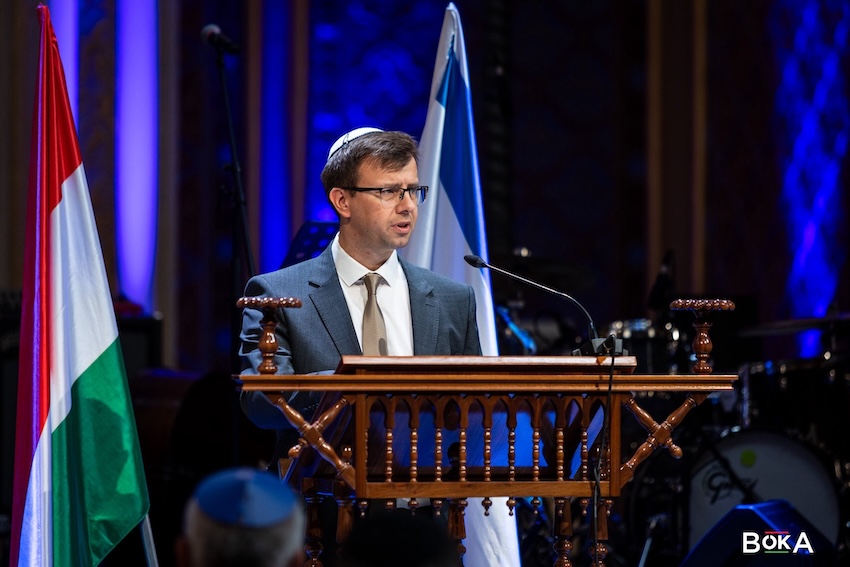
“On behalf of the Government of Hungary I would like to publicly welcome Her Excellency Ambassador Maja Kadosh, Representative of the State of Israel in Hungary. I wish her strength and success in her activities. In Hungary, you will find friends, partners, and allies.
The friendship and strategic partnership between the State of Israel and Hungary are based onshared values, common interests, and strong economic, historical, cultural, and personal ties. This is not a fair-weather friendship. This partnership remains strong, even – and especially – in difficult times. We know that this understanding is mutual, and we value this friendship deeply.
We equally value our Jewish communities. They are safe here. They are diverse, vibrant, and thriving. Our Jewish compatriots are part of us. They are part of our identity and heritage, just as Jewish communities across Europe are part of Europe’s identity and heritage. If we abandon this heritage, Europe as we know it will cease to exist. It will become something else – and that process would be irreversible. Make no mistake: there is a fight going on for the soul of Europe. The rising antisemitism that increasingly takes the disguise of anti-Israeli or anti-Zionist protests is, in fact, an attack on the soul of Europe.
These are attacks not only against Jews, but against all Europeans, and they must be addressed as such. We have seen that political violence – whether verbal or physical, online or offline – has become widespread. Jewish communities are now a primary target of such violence. But let us be clear: this violence usually begins with Jews, but it never ends with Jews.
We are aware of the special relationship between the State of Israel and the Jewish communities of Europe. A lack of partnership, a lack of dialogue between the EU, its Member States, and the State of Israel – combined with the language of sanctions, exclusion, and isolation – is not only counterproductive, but it also undermines the credibility of our stance against rising antisemitism in Europe. It harms our Jewish communities.
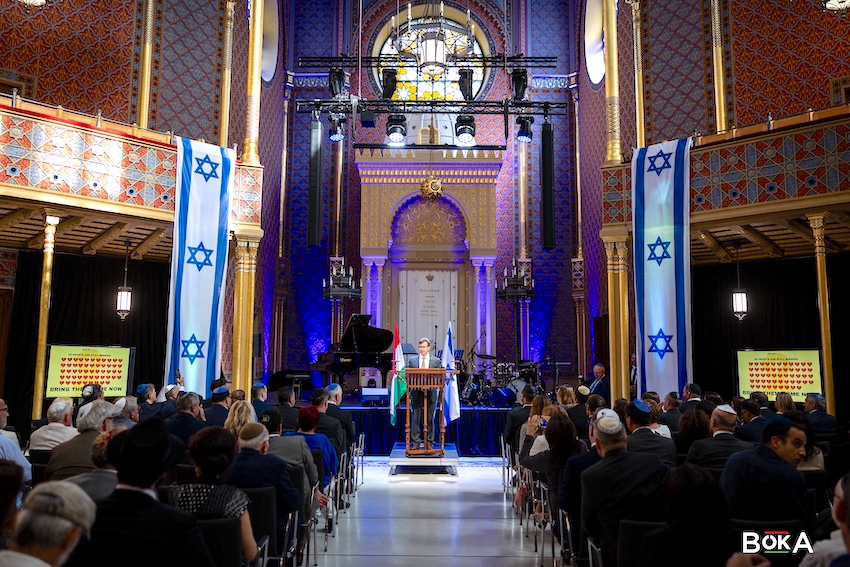
My heart breaks when I hear, disturbingly often, that Jews and Jewish communities in some European countries feel that they must publicly issue specific political statements in order to guarantee their own security. That they must prove they are the ‘good Jews,’ as opposed to the ‘bad Jews.’ And we all know what has happened throughout history to the so-called ‘bad Jews’. This is a disgrace.
I am here to confirm that the Hungarian government protects and supports Jewish communities under all circumstances and without any conditions – regardless of political affiliation, and regardless of their views on developments in the Middle East. In Hungary, Jews and Jewish communities are safe, and they will remain safe. And I call on all persons of power and influence in Europe: stop playing with fire. If you let the demon of political violence out of the bottle, it will eventually destroy us all. It will ultimately destroy Europe.
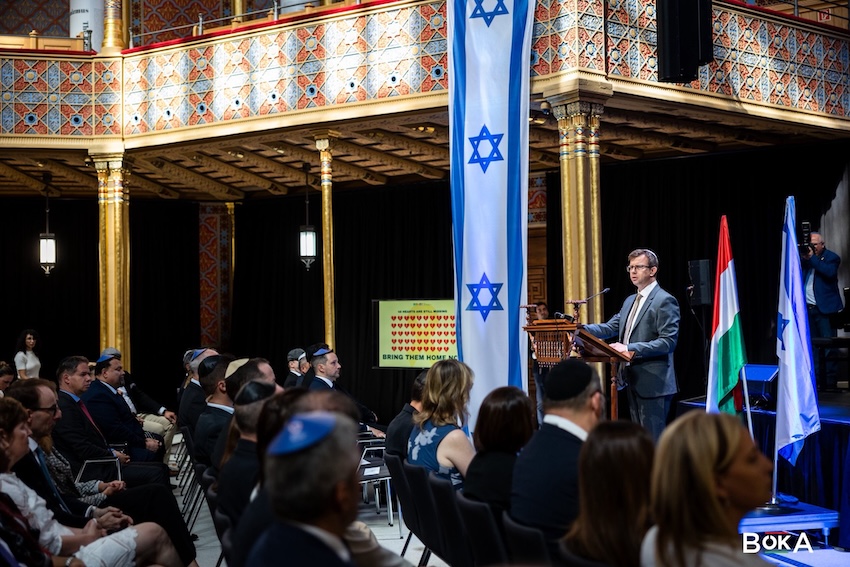
As Rosh Hashanah approaches, we honour the Creator of the universe, and we await the judgment of individuals. This holiday is both universal and deeply personal. As the late Chief Rabbi of the United Kingdom, Lord Jonathan Sacks, taught us: life is hard, but it is also meaningful. It is the single greatest work of art we will ever create. Yet life is not lived in isolation from place or time. We are what we are because of those who came before us. And this, too, applies to our children and grandchildren. We are created, but we are also creators. Our descendants will live in the world that we shape for them. We bear a tremendous responsibility. Let us not fail in this task. I wish you all a good and sweet new year and may we all be inspired to lead lives of meaning, responsibility, and goodness.”
It was followed by the address of Her Excellency Maya Kadosh, Ambassador of the State of Israel to Hungary:
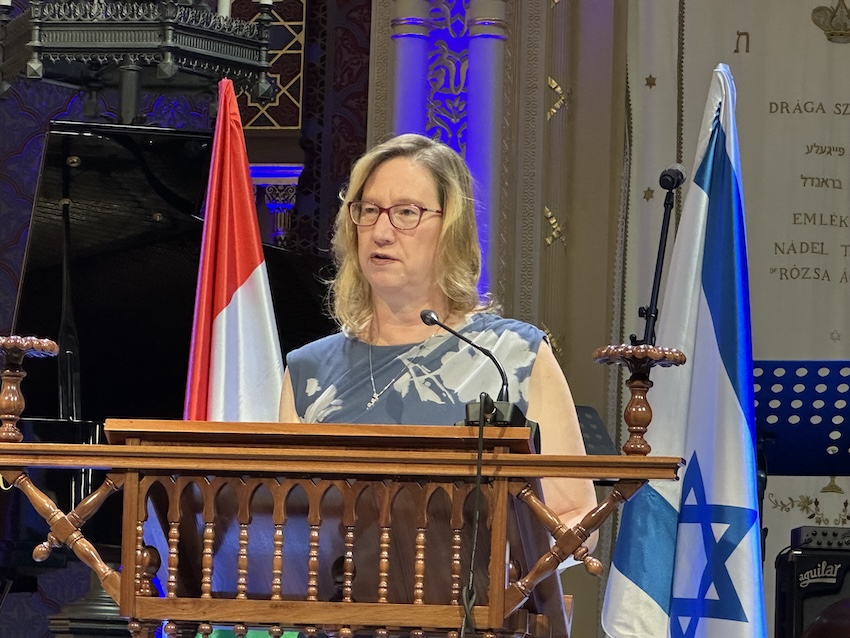
“Your Excellencies, Minister Bóka, Distinguished Members of the Diplomatic Corps, Leaders of the Jewish community, Dear Friends,
Shanah Tovah – a Happy New Year to all of you. It is a privilege to celebrate my very first Rosh Hashanah in Hungary as Israel’s ambassador.
Rosh Hashanah is more than a holiday. It is a time for reflection, gratitude, and hope. It reminds us that life offers renewal – the chance to begin again, to heal, and to build deeper connections. For me, this year is a personal new beginning, as I start my mission in Budapest together with my husband, Sami. Just as Israel’s story is one of resilience and renewal, so too is this journey of building bridges and deepening friendship between Israel and Hungary.
Today also marks another new beginning. I am delighted to welcome Israel’s new Consul in Hungary, Orit Shani, and her husband, Shay. Their presence will strengthen Israel’s partnership and presence here even further.
As we celebrate, we cannot forget the pain of the past. Since 7 October 2023, Israel has carried the memory of one of the darkest days in our history. Today, 48 Israeli hostages remain in Gaza, and their families continue to await their return. Even in moments of festivity, they are in our hearts. Our deepest prayer is for their safe homecoming.
Israel continues to face profound challenges – threats to our security, internal debates within our society, and a disturbing global rise in antisemitism. This is not only a chapter in history, but a reality of our present. It requires clear voices and joint action.
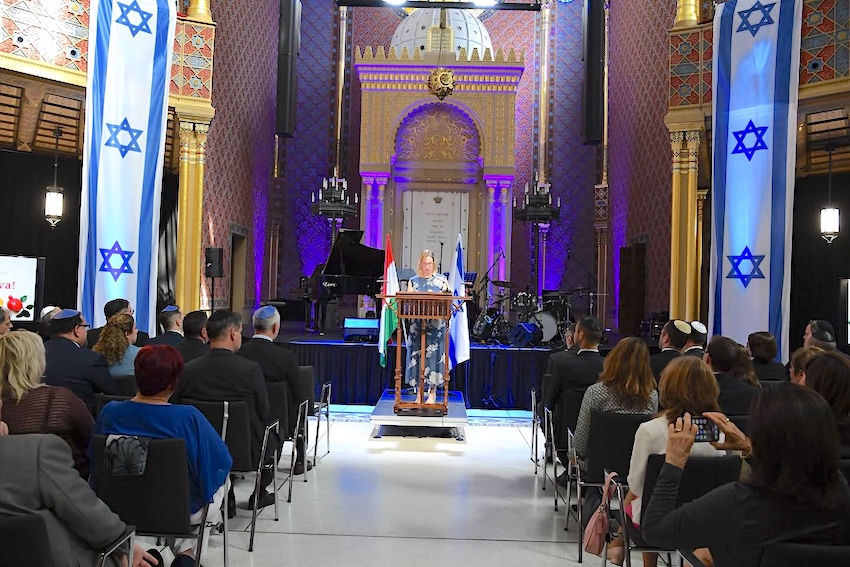
In this regard, we are deeply grateful for Hungary’s commitment to combating antisemitism and safeguarding Jewish life. Minister Bóka, your dedication is both valued and appreciated. It strengthens the bonds between our nations and our peoples.

Yet Rosh Hashanah is not a holiday of despair – it is a festival of hope. It teaches us that even in hardship we can find strength, and that every end contains the seeds of a new beginning. With courage, respect, and optimism, we – Israelis, Hungarians, our international partners, and the Jewish community – can work together for peace, mutual understanding, and a shared future. So today, as we dip apples in honey, let us wish each other not only a Happy New Year, but a sweeter one – a year of healing, peace, and new beginnings.”
“Shanah Tovah u’Metukah – may it be a good and sweet year for us all.”
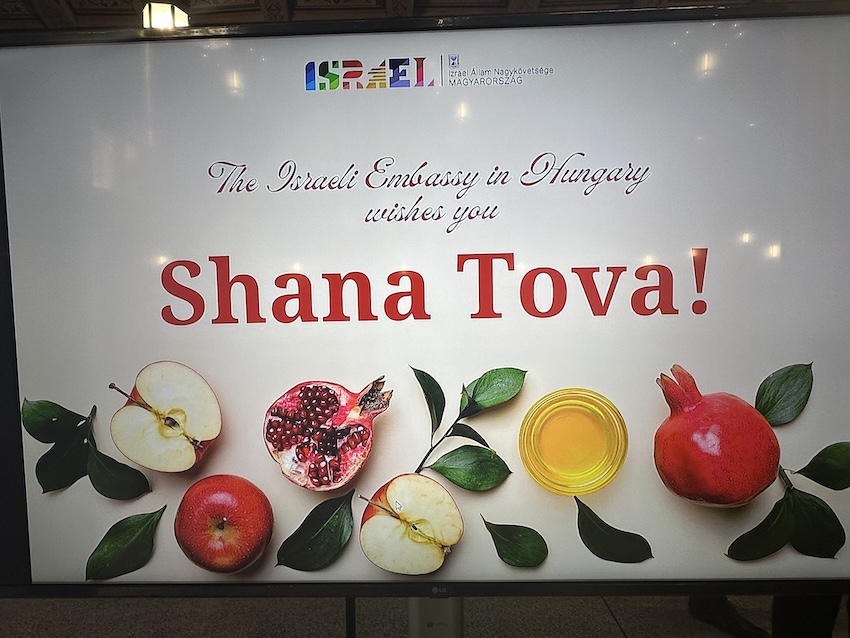
Religious Moments
The audience was deeply moved by the words related to New Year and the prayer of Chief Rabbi Zoltán Radnóti, Head of the Budapest Rabbinate. He also performed the traditional shofar blowing, a spiritual “wake-up call” for reflection and repentance during the High Holidays of Rosh Hashanah and Yom Kippur. Its raw sound is meant to stir the soul, and it resonated powerfully with those gathered.
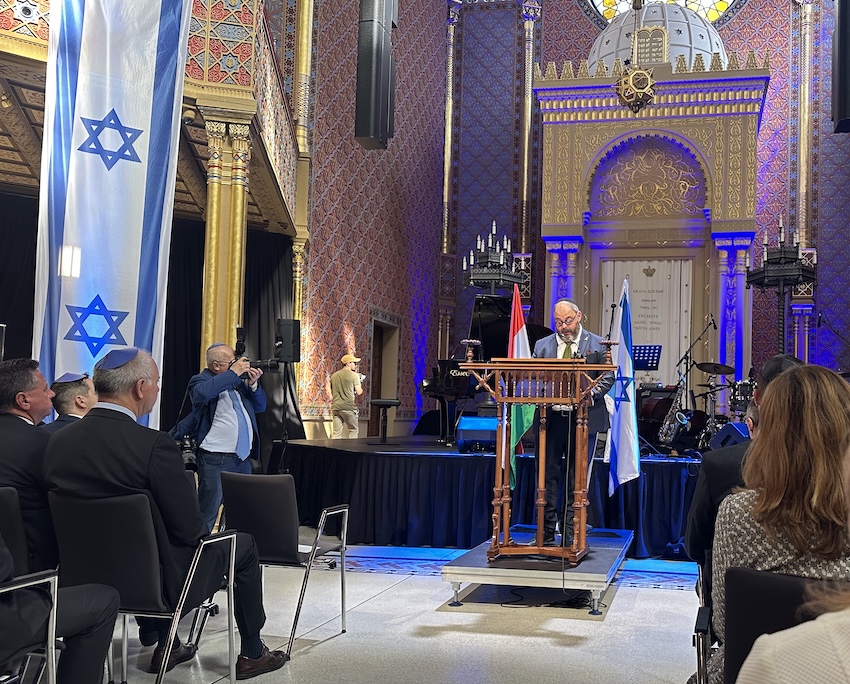
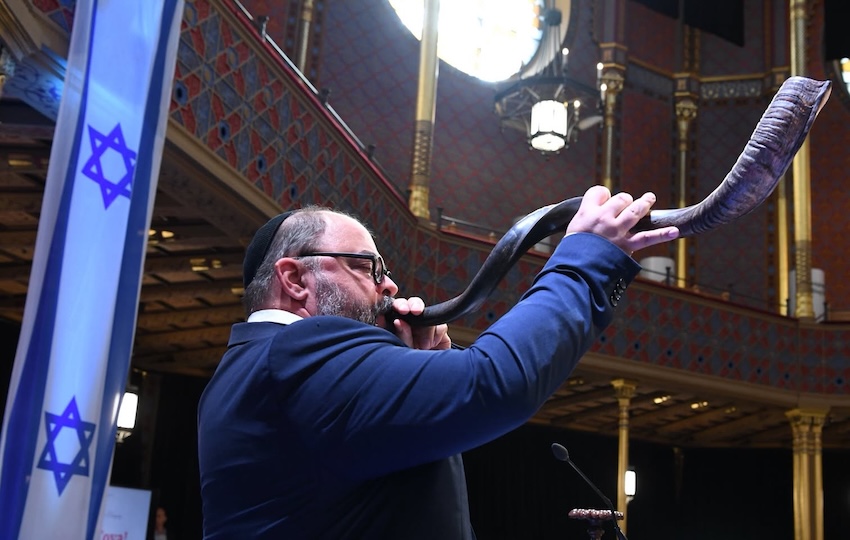
Cultural Performance
The solemnity of the moment gave way to celebration with a musical performance by the Israeli Nigun Quartet – Tom Lev (saxophone), Moshe Elmakias (piano), Opher Schneider (double bass), and Yosi Levy (drums) – blending tradition with artistry.
The Nigun Quartet offers a unique fusion of Hasidic melodies and contemporary jazz. Their music shifts between dreamlike soundscapes and driving rhythms, balancing the raw energy of rock with the elegance and depth of modern jazz. Adding to the spiritual resonance of the evening, the musicians also incorporated the shofar as an instrument, enriching the performance with a symbolic and powerful voice.
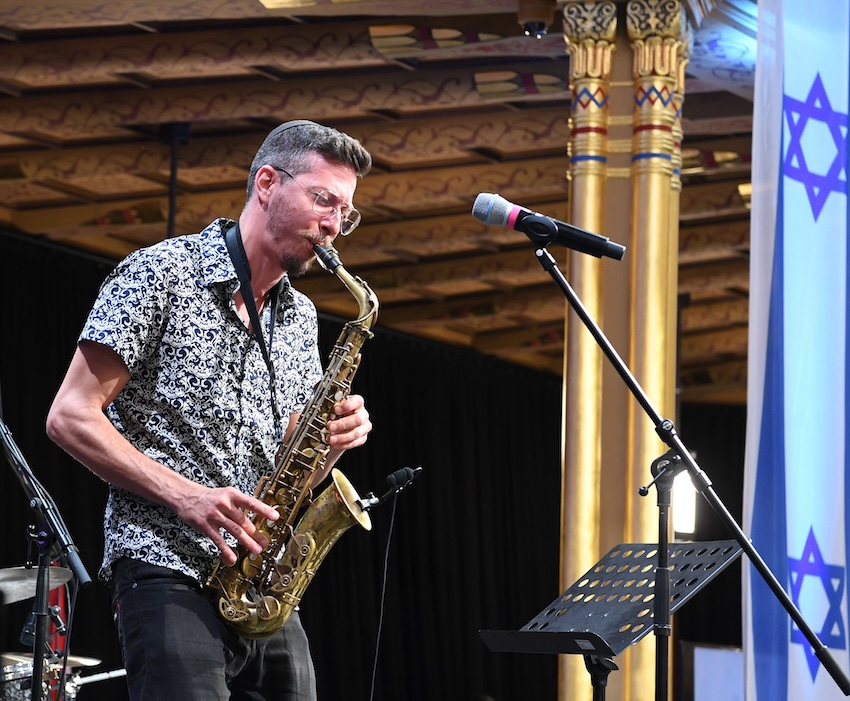
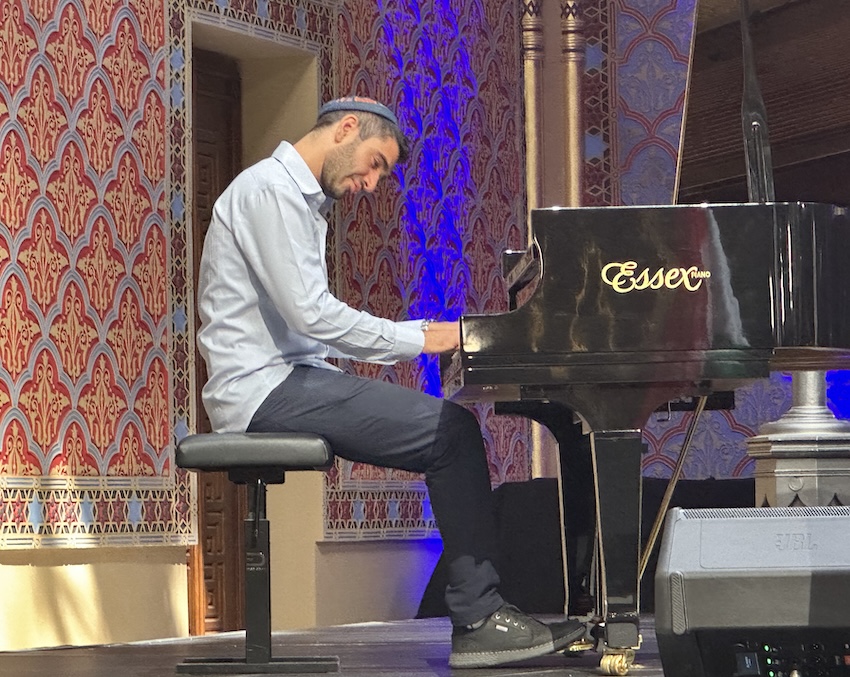
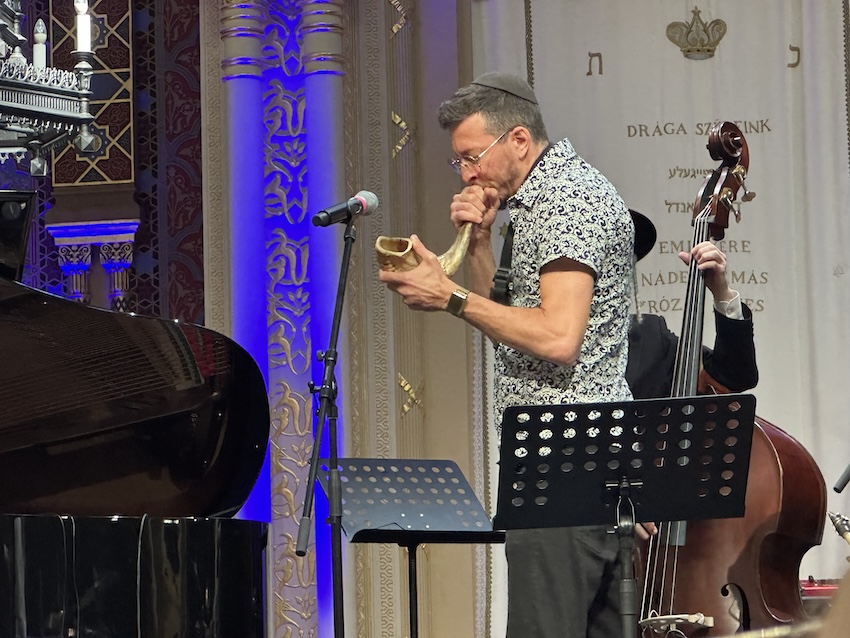
At the New Year celebration, the quartet captivated the audience with a performance that was both uplifting and soulful – a musical journey where tradition and innovation harmoniously converged.
In just five years, with growing acclaim both in Israel and throughout Europe (France, Germany, Hungary), as well as two critically praised studio albums, Nigun continues to inspire listeners with their adventurous and deeply moving sound.
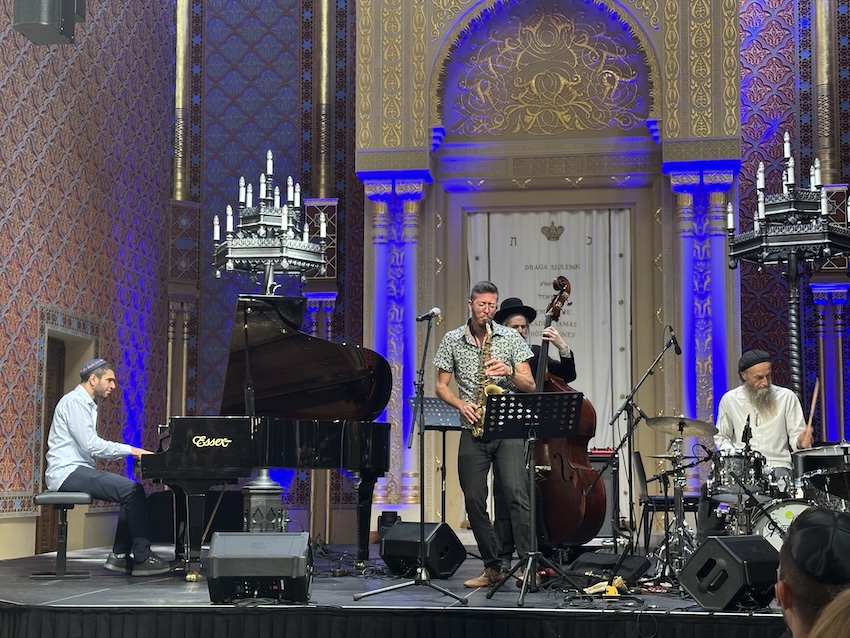
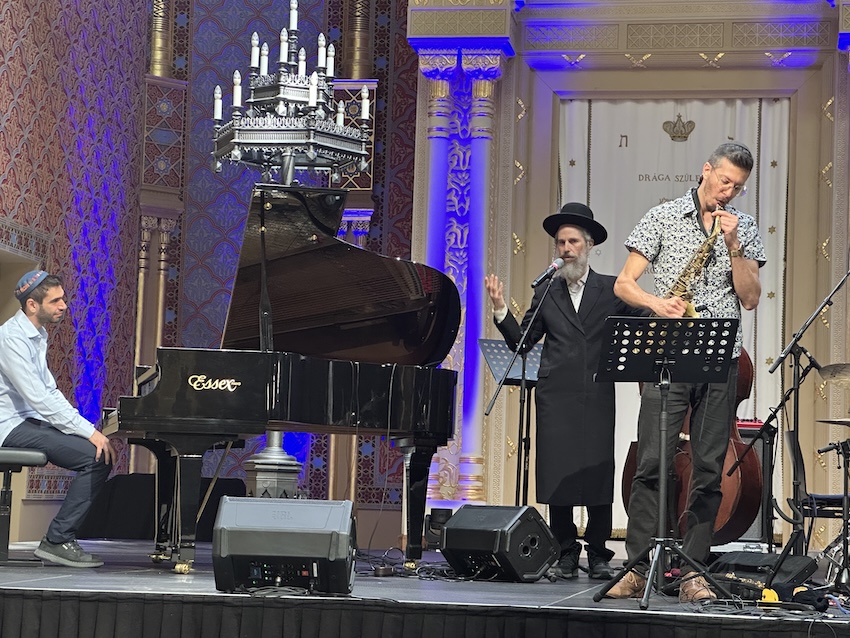
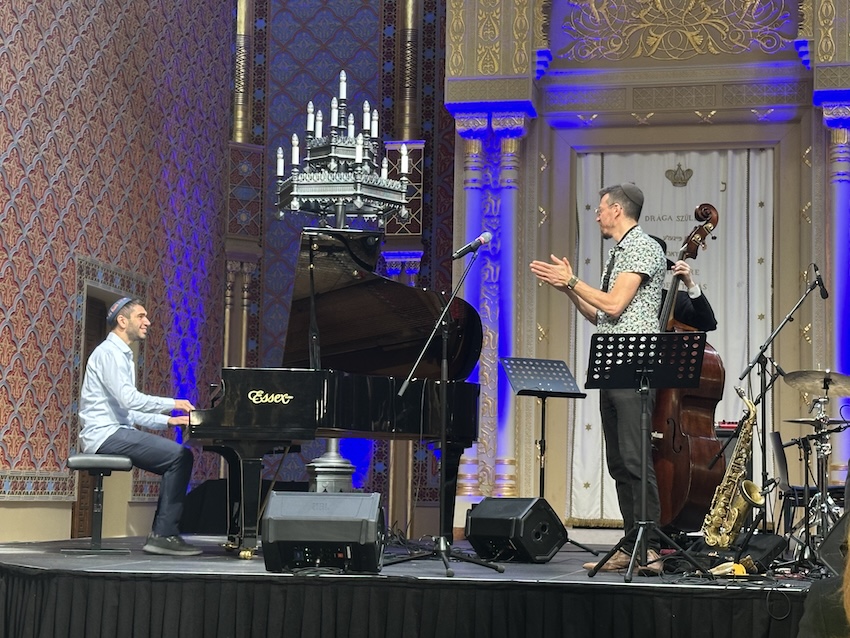
Reception
The official program concluded with a reception in the synagogue gallery, where guests enjoyed traditional Rosh Hashanah delicacies, including apples dipped in honey – symbolizing the hope for a sweet and prosperous new year. Minister János Bóka joined Ambassador Maya Kadosh in a toast, extending heartfelt wishes for peace, happiness and success in the year ahead.

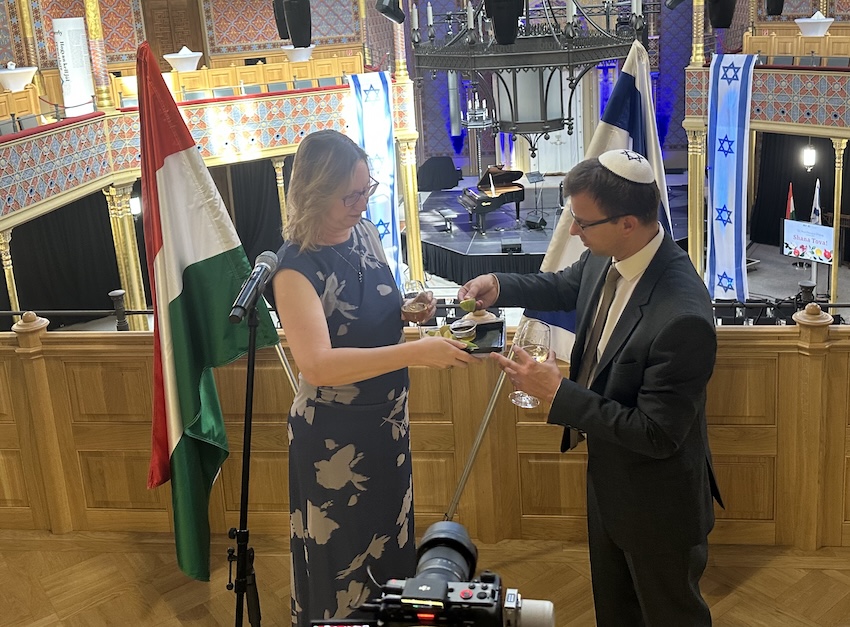
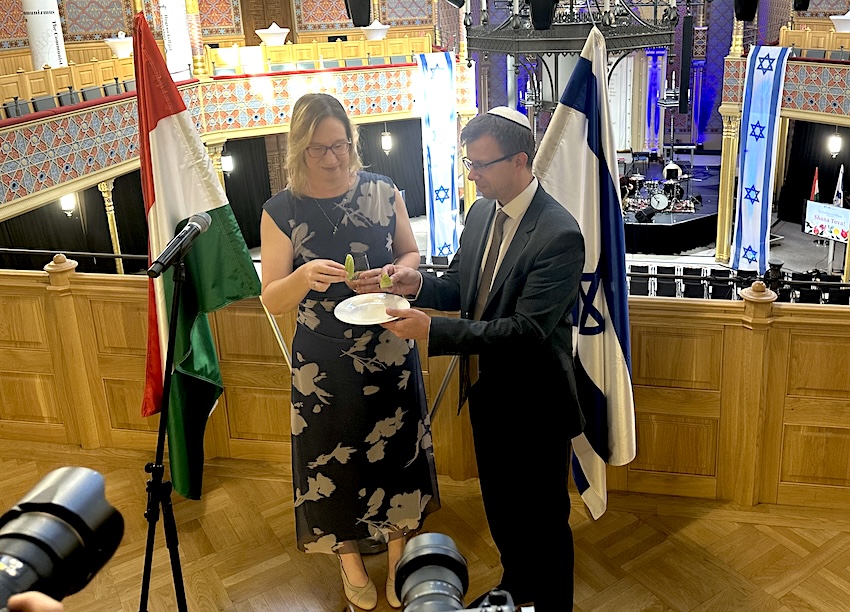

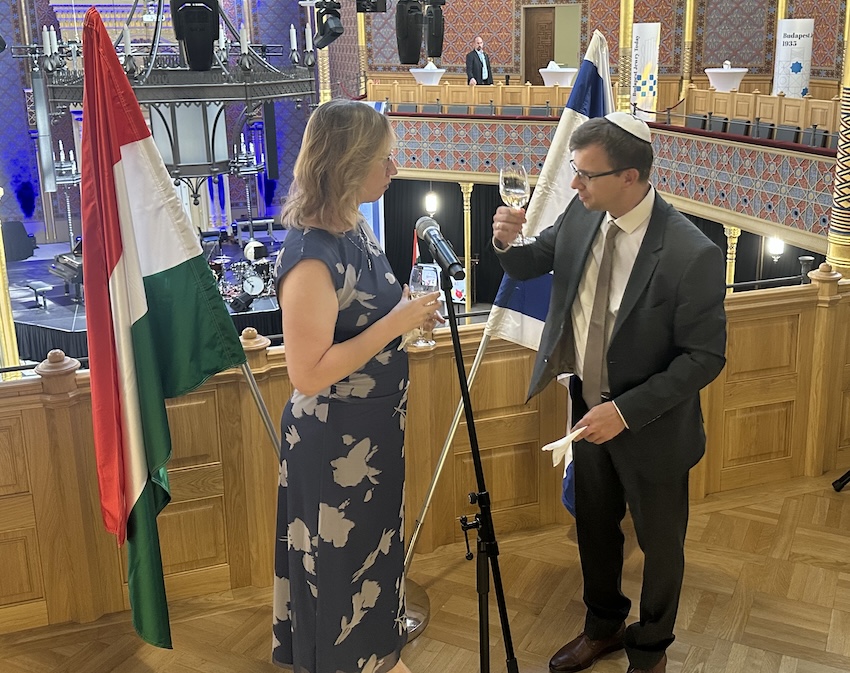
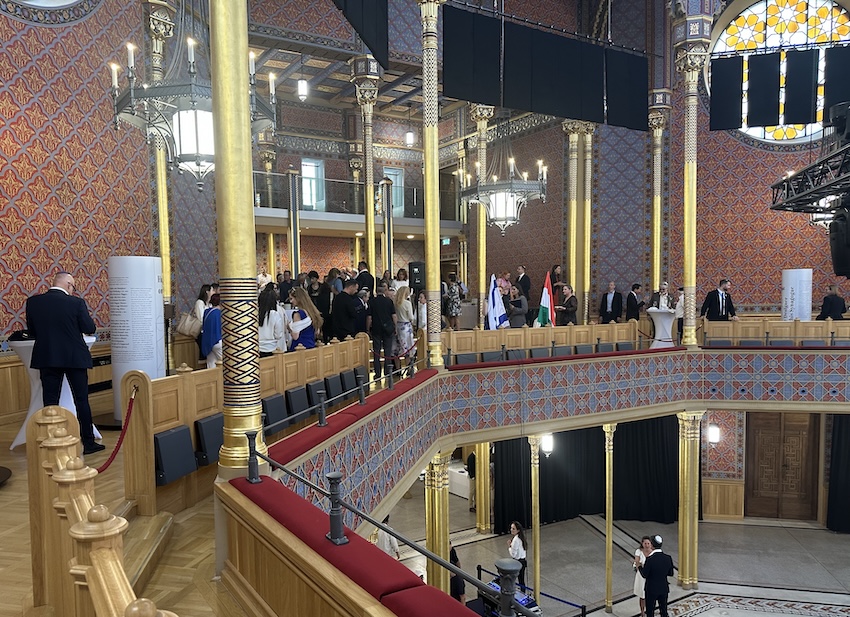
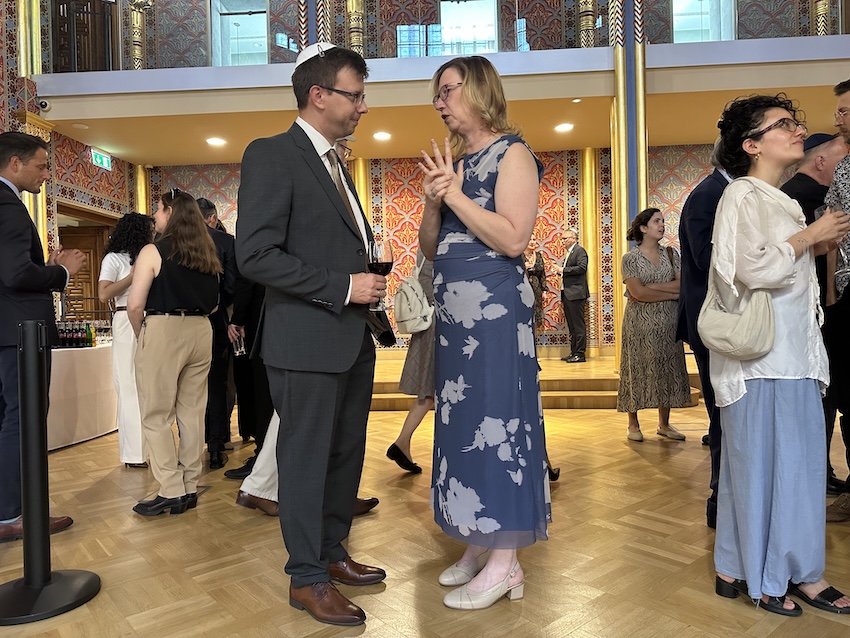
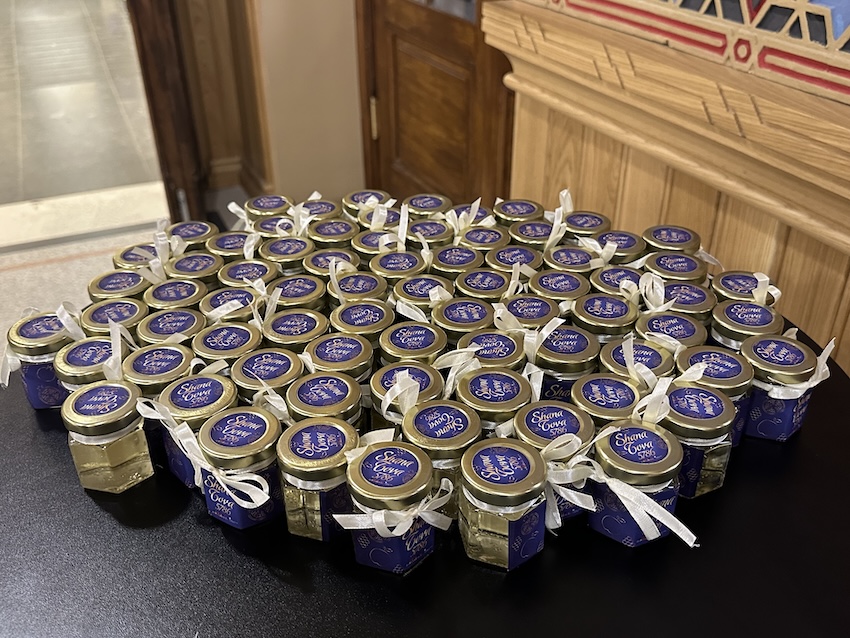
The evening highlighted the resilience of Jewish life in Hungary, the strength of Hungarian–Israeli friendship, and the universal message of Rosh Hashanah: renewal, hope, and responsibility for the future.

Source: Embassy of the State of Israel in Budapest
Photos from the Embassy of State of Israel, Facebook of Minister János Bóka, and Diplomatic Press Agency
Edited by Anna Popper


